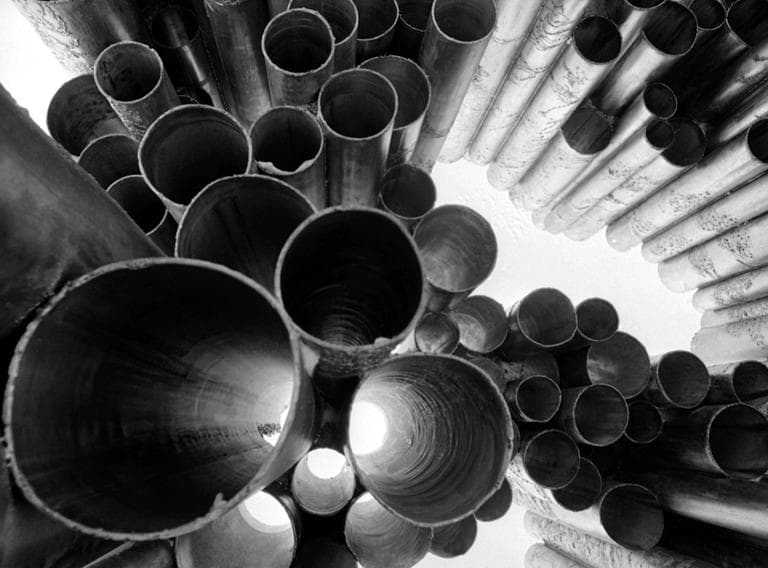Advertisement
Jean Sibelius: The Great Finnish Master
ResumeWe’re talking about the music of Jean Sibelius, the voice of Finland, the Scandinavian North.

The work of Finnish composer Jean Sibelius became world famous as the sound of Scandinavia. Evocative of nature, mountain, birch, ice and pine. His sixth symphony, he said, always reminded him of the scent of first snow.
Some loved it. Some did not. When Stravinsky and Shoenberg raced into the atonal future, Sibelius kept ties to the romantic past.
Now, Sibelius is getting another listen. From “Finlandia” right on through.
This hour On Point: a new look at the life and music of Jean Sibelius.
-Tom Ashbrook
Guests
Daniel Grimley, professor of Music at Oxford University and Scholar-in-Residence at the Bard Summerscape Music Festival.
Christopher Gibbs, professor of Music at Bard College and Co-Artistic Director of the Bard Summerscape Music Festival.
From Tom's Reading List
Wikipedia "The core of Sibelius's oeuvre is his set of seven symphonies. Like Beethoven, Sibelius used each successive work to further develop his own personal compositional style. His works continue to be performed frequently in the concert hall and are often recorded."
The New York Times "On screen was newly shot video of a car driving through the forest, then a manuscript — meant to be Sibelius’s lost Eighth Symphony — burning in a fireplace, its corners curling in the flames. The sequence follows our traditional sense of Sibelius: a crackly recording, the snowy woods of his native Finland, a reclusive composer in a provincial land."
Wall Street Journal "In 1955, the French conductor and theorist René Leibowitz published "Sibelius, le plus mauvais compositeur du monde" (the worst composer in the world), a pamphlet aimed at the Finnish composer Jean Sibelius (1865-1957). Certainly music history has been littered with similarly broad and injudicious barbs whose vitriol often flows out of pent-up professional rivalry. Leibowitz was best known as a wise and influential conductor of Beethoven and Mozart, as well as the guiding spirit over beautiful and idiomatic recordings of Bizet operas and Offenbach operettas. He was also the author of important books on Arnold Schoenberg and on 12-tone music. Significantly, Leibowitz was a 12-tone composer himself, writing at a time when Sibelius had already enjoyed decades of widespread popularity among audiences, despite the castigation of other modernist critics and composers, among them Aaron Copland."
Playlist
“Finlandia” (2011–Bard Festival) Leon Botstein, American Symphony Orchestra
“Kullervo”; Mvmt. 5 (2011–Bard Festival) Leon Botstein, American Symphony Orchestra
“Finlandia” (1986) Gothenburg Symphony Orchestra
“This Is My Song” (LIVE-2005) Joan Baez
Violin Concerto in D minor Erica Kiesewetter American Symphony Orchestra
Symphony # 1 in E minor; Mvmt. 1 (2011) Osmo Vänskä
Symphony # 3 in C major; Mvmt. 1 (1996) Pittsburg Symphony Orchestra
Mahler Symphony #8; "Veni Creator Spiritus" (Come Creator Spirit) Chicago Symphony Orchestra
Symphony # 5 in E flat major; Mvmt. 4 (2004) Sir Colin Davis, London Symphony Orchestra
Symphony # 7 in C major (2002) American Symphony Orchestra
Symphony # 7 in C major (2002) London Symphony Orchestra
“Luonnotar” (2011-Bard Fest.) Christiane Libor (Soprano) American Symphony Orchestra
“Tapiola” (1996) Helsinki Philharmonic Orchestra
“Andante Festivo” (1939) Finnish Radio Orchestra
“Finlandia” (2011 – Bard Festival) American Symphony Orchestra
This program aired on August 19, 2011.